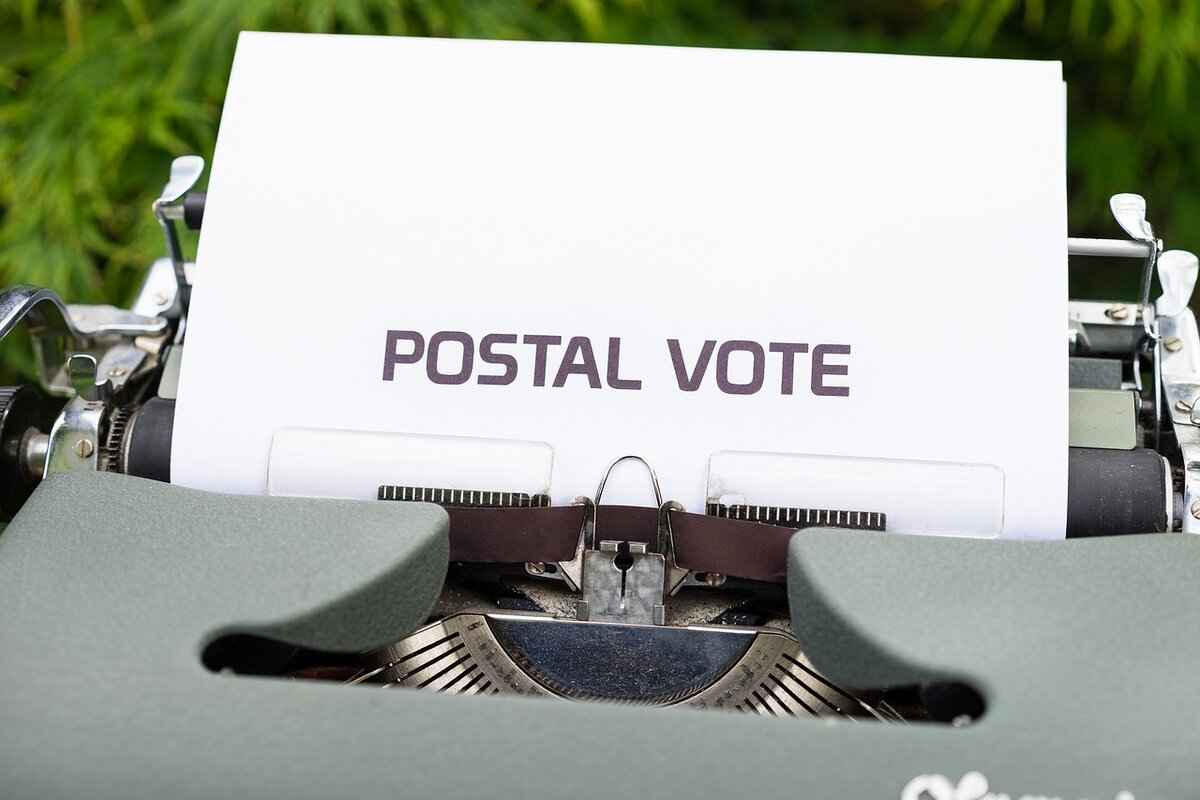This article delves into essential strategies for safeguarding your legal rights and minimizing the risk of losing a case. It provides practical insights and expert advice for individuals navigating the complex legal landscape.
Understanding Your Legal Rights
To effectively protect your legal rights, it is vital to have a clear understanding of them. Under U.S. law, individuals possess various fundamental rights, including:
- The right to remain silent to avoid self-incrimination.
- The right to legal counsel during criminal proceedings.
- The right to a fair trial and due process.
These rights apply in different situations, from criminal defense to civil disputes, and knowing them can empower you in legal matters.
Importance of Legal Representation
Having a qualified attorney can profoundly influence the outcome of your case. Legal representation is not just beneficial but often essential, especially in complex cases. A skilled attorney can:
- Provide expert legal advice tailored to your specific situation.
- Navigate the intricacies of the legal system on your behalf.
- Advocate for your rights and interests effectively.
Choosing the Right Attorney
Selecting the right attorney can be overwhelming. Here are some key factors to consider:
- Experience: Look for an attorney with a proven track record in your specific legal area.
- Specialization: Consider attorneys who specialize in the type of case you are facing.
- Communication Skills: Ensure the attorney communicates clearly and keeps you informed throughout the process.
Understanding the Legal Process
Familiarity with the legal process is crucial for protecting your rights. The typical steps involved in legal proceedings include:
1. Initial Consultation2. Filing of Complaint or Charges3. Discovery Phase4. Trial or Settlement Negotiations5. Final Judgment
Understanding these steps can help you prepare effectively for what lies ahead.
Gathering Evidence and Documentation
Collecting evidence is critical for building a strong case. To support your claims effectively, consider the following:
- Types of Evidence: Gather documents, witness statements, and expert opinions that can strengthen your case.
- Maintaining Accurate Records: Keep detailed records of all relevant documentation throughout the legal process.
Understanding Legal Deadlines
Awareness of legal deadlines is crucial to avoid losing your rights. Key deadlines may include:
- Statute of limitations for filing claims.
- Deadlines for submitting evidence or motions.
Missing these deadlines can have serious consequences, including the dismissal of your case.
Negotiation and Settlement Strategies
Effective negotiation can lead to favorable outcomes without the need for trial. Here are strategies to consider:
- Preparing for Negotiations: Understand your goals and the other party’s position before entering negotiations.
- When to Consider Settlement: Evaluate whether a settlement is in your best interest based on the circumstances of your case.
By following these strategies, you can significantly enhance your ability to protect your legal rights and minimize the risk of losing a case.

Understanding Your Legal Rights
is a fundamental aspect of navigating the complex landscape of the U.S. legal system. These rights are designed to protect individuals and ensure fair treatment under the law. Familiarity with these rights not only empowers you but also equips you with the knowledge necessary to defend them effectively in various situations.
Under U.S. law, individuals possess a range of fundamental rights, many of which are enshrined in the Constitution. These rights include:
- The Right to Free Speech: This right allows individuals to express their opinions without censorship or restraint, subject to certain limitations.
- The Right to Due Process: This ensures that individuals receive fair treatment through the normal judicial system, especially in criminal cases.
- The Right to Privacy: This protects individuals from unwarranted government intrusion into their personal lives.
- The Right to Equality: This prohibits discrimination based on race, gender, religion, or other characteristics.
Understanding how these rights apply in different contexts is crucial. For instance, in a workplace setting, the right to equality ensures that employees are treated fairly, while the right to free speech allows them to voice concerns without fear of retaliation. In legal proceedings, knowing your right to due process means you are entitled to a fair trial, which includes the right to an attorney and the right to present evidence.
Moreover, in situations involving law enforcement, awareness of your rights can significantly impact the outcome of an encounter. For example, the Fourth Amendment protects against unreasonable searches and seizures, meaning that police must have probable cause or a warrant to search your property. Understanding this right can help you assert yourself if you feel your rights are being violated.
It is also important to recognize that legal rights can vary by state and situation. For instance, while federal law provides a baseline of rights, state laws may offer additional protections. Therefore, being aware of both federal and state rights is essential for comprehensive legal understanding.
In summary, knowing your legal rights is not just beneficial; it is essential for protecting yourself in various situations. Whether interacting with law enforcement, navigating employment issues, or facing legal proceedings, a clear understanding of your rights will empower you to advocate for yourself and ensure that you are treated fairly under the law. Always consider seeking legal advice if you are unsure about your rights or how to assert them effectively.
By being informed about your legal rights, you take the first step toward safeguarding them, ensuring that you can navigate the legal landscape with confidence and clarity.

Importance of Legal Representation
In the intricate world of law, having a qualified attorney is not just beneficial; it can be a pivotal factor that influences the outcome of your case. Legal representation is essential for several reasons, each contributing to the overall effectiveness of your legal strategy.
- Expert Knowledge: Attorneys possess specialized knowledge of the law that the average individual may lack. They understand the complexities of legal procedures, statutes, and regulations that can significantly impact your case.
- Strategic Guidance: A qualified attorney can offer strategic advice tailored to your unique circumstances. They can assess the strengths and weaknesses of your case, helping you navigate potential pitfalls.
- Negotiation Skills: Legal professionals are trained negotiators. They can advocate on your behalf, aiming for the best possible outcome, whether in settlement discussions or court proceedings.
- Access to Resources: Attorneys often have access to resources that can bolster your case, including expert witnesses, investigators, and legal research tools that may not be available to the public.
- Emotional Support: Legal matters can be stressful and overwhelming. An attorney can provide reassurance and support throughout the process, allowing you to focus on other aspects of your life.
When it comes to choosing the right attorney, several factors should be considered:
- Experience: Look for an attorney with a proven track record in the specific area of law that pertains to your case. Experience can often translate to better outcomes.
- Specialization: Different attorneys specialize in various fields, such as family law, criminal defense, or personal injury. Ensure that the attorney you choose has expertise relevant to your legal issue.
- Communication Skills: An effective attorney should communicate clearly and regularly. They should be able to explain complex legal concepts in a way that you can understand.
- Reputation: Research the attorney’s reputation through reviews, testimonials, and professional ratings. A well-regarded attorney is likely to provide quality representation.
- Consultation: Many attorneys offer free consultations. Take advantage of this opportunity to assess their approach and see if you feel comfortable working with them.
In conclusion, the importance of having a qualified attorney cannot be overstated. Legal representation is crucial in ensuring that your rights are protected and that you have the best chance of achieving a favorable outcome in your case. By understanding the critical role attorneys play and knowing how to select the right one for your needs, you can significantly enhance your chances of success in the legal arena.
Choosing the Right Attorney
Choosing the right attorney can be a daunting task, especially when faced with the complexities of legal matters. The attorney you select plays a crucial role in the outcome of your case, making it essential to find someone who aligns with your needs and expectations. Below are some key considerations to keep in mind during your search for legal representation.
- Experience: Look for an attorney with a proven track record in handling cases similar to yours. An attorney’s experience can significantly impact their ability to navigate the legal system effectively. Ask about their previous cases, outcomes, and how long they have been practicing in the relevant legal field.
- Specialization: Legal practice is diverse, with various specialties such as family law, criminal defense, corporate law, and more. It is essential to choose an attorney who specializes in the area relevant to your case. A specialist will have a deeper understanding of the laws, regulations, and potential outcomes in that field.
- Communication Skills: Effective communication is vital in any attorney-client relationship. Your attorney should be able to explain complex legal concepts in a way that is easy to understand. Additionally, they should keep you informed about the progress of your case and be responsive to your questions and concerns.
- Reputation: Research the attorney’s reputation within the legal community and among previous clients. Online reviews, testimonials, and referrals from trusted sources can provide valuable insights. A well-respected attorney is likely to have a strong network and credibility that can benefit your case.
- Consultation: Many attorneys offer a free initial consultation. Use this opportunity to assess their approach and compatibility with your needs. Prepare a list of questions to gauge their knowledge, strategy, and how they plan to handle your case.
- Fees and Billing Structure: Understand the attorney’s fee structure before making a decision. Some attorneys charge hourly rates, while others may work on a contingency basis. Ensure you are clear about any potential costs involved and how billing will be handled throughout the process.
In summary, selecting the right attorney is a critical step in protecting your legal rights and achieving favorable outcomes. By focusing on experience, specialization, communication skills, reputation, and fee structures, you can make an informed decision that aligns with your legal needs.
Evaluating Experience and Expertise
When it comes to selecting an attorney, understanding their experience and expertise in specific legal areas is paramount. This evaluation can significantly influence the outcome of your case. Here, we will explore key factors to consider when assessing an attorney’s background and track record effectively.
- Specialization in Relevant Fields: Attorneys often specialize in different areas of law, such as family law, criminal defense, or corporate law. It is important to choose an attorney who has a proven track record in the specific legal field relevant to your case. For instance, if you are facing a criminal charge, an attorney with extensive experience in criminal law will be better equipped to navigate the complexities of your situation.
- Years of Practice: The number of years an attorney has been practicing can provide insight into their level of expertise. An attorney with several years of experience is likely to have encountered a wide range of cases and developed effective strategies for various legal challenges. However, do not overlook newer attorneys who may bring fresh perspectives and innovative approaches.
- Success Rate: An attorney’s success rate in handling cases similar to yours is a critical factor to consider. You can inquire about their past cases and outcomes, which can provide a clearer picture of their effectiveness. A high success rate can indicate a strong understanding of the law and a capability to advocate effectively on behalf of clients.
- Client Testimonials and Reviews: Feedback from previous clients can offer valuable insights into an attorney’s practice. Look for testimonials that highlight their communication skills, professionalism, and overall satisfaction with the legal services provided. Online reviews on platforms like Avvo or Google can also help you gauge the attorney’s reputation within the community.
- Professional Associations: Membership in professional organizations, such as the American Bar Association or local bar associations, can signify an attorney’s commitment to their field. These affiliations often provide access to continuing education and networking opportunities, which can enhance an attorney’s skills and knowledge.
To further assess an attorney’s qualifications, consider scheduling an initial consultation. During this meeting, you can ask specific questions about their experience, approach to cases, and how they plan to handle your legal issue. This interaction can also help you gauge their communication style and whether you feel comfortable working with them.
In summary, evaluating an attorney’s experience and expertise requires careful consideration of several factors, including their specialization, years of practice, success rate, client feedback, and professional affiliations. By taking the time to conduct thorough research, you can make an informed decision that aligns with your legal needs.
Assessing Communication Skills
Effective communication is paramount in legal matters, serving as the backbone of a successful attorney-client relationship. When navigating complex legal landscapes, the ability of your attorney to convey information clearly and succinctly can significantly influence the outcome of your case. This section delves into why communication skills are essential and how to evaluate them when selecting legal representation.
One of the first indicators of an attorney’s communication ability is their responsiveness. During initial consultations, observe how quickly they respond to your inquiries. A qualified attorney should not only answer your questions but also do so in a timely manner. If they are slow to respond before you hire them, it may be a red flag for how they will communicate throughout your case.
Next, consider their ability to explain complex legal terms in a way that is easy to understand. Legal jargon can be overwhelming, and a competent attorney should be able to break down complicated concepts into digestible pieces. Ask them to clarify any terms you find confusing during your initial meetings. Their willingness to ensure you understand the legal process is a good sign of effective communication.
Another crucial aspect is the attorney’s listening skills. A good attorney should actively listen to your concerns and questions. During your discussions, pay attention to whether they acknowledge your points and respond appropriately. This two-way communication is vital for building trust and ensuring that your needs are met throughout the legal process.
Additionally, inquire about their preferred methods of communication. Some attorneys may prefer emails, while others may opt for phone calls or in-person meetings. Establishing a clear communication plan from the onset helps set expectations and ensures that you remain informed about your case’s progress. A well-organized attorney will likely have a system in place to keep you updated on critical developments.
Furthermore, assess how they handle difficult conversations. Legal matters often involve sensitive topics, and an effective attorney should be able to discuss these issues with empathy and professionalism. Their ability to navigate tough discussions can be indicative of their overall communication skills and can help you feel more comfortable throughout the process.
Lastly, consider seeking testimonials or reviews from previous clients. Feedback from others can provide valuable insights into an attorney’s communication style and effectiveness. Look for comments that highlight their ability to keep clients informed and their responsiveness to inquiries. This information can help you make a more informed decision when selecting your legal representative.
In summary, assessing communication skills is a crucial step in choosing the right attorney. By focusing on responsiveness, clarity, listening abilities, preferred communication methods, handling of difficult conversations, and client feedback, you can ensure that you select a legal professional who will keep you informed and engaged throughout your case. Effective communication not only fosters a positive attorney-client relationship but can also be a decisive factor in achieving a favorable outcome in your legal matters.
Understanding the Legal Process
is essential for anyone involved in legal proceedings. Familiarity with the legal process can empower you to protect your rights effectively. This section provides a detailed overview of the typical steps involved in legal proceedings, ensuring you are well-prepared to navigate the complexities of the law.
The legal process generally unfolds in several stages, each critical to the outcome of your case. Below is an outline of these stages:
- Initial Consultation: This is often the first step where you meet with an attorney to discuss your case. During this meeting, you will share the details of your situation, and the attorney will provide insights into the potential legal strategies available to you.
- Filing a Complaint: If you decide to proceed, your attorney will file a complaint or petition with the appropriate court. This document outlines your claims and the basis for the court’s jurisdiction.
- Response from the Defendant: After the complaint is filed, the defendant has a specified period to respond. Their response may include an answer to your claims or a motion to dismiss the case.
- Discovery Phase: This critical stage involves gathering evidence. Both parties exchange information and documents relevant to the case, which may include depositions, interrogatories, and requests for production of documents.
- Motions: Before the trial, parties may file various motions, such as a motion for summary judgment, which requests the court to rule in their favor based on the evidence presented during discovery.
- Trial: If the case is not resolved through motions or settlement, it proceeds to trial. During the trial, both sides present their arguments, evidence, and witness testimonies before a judge or jury.
- Verdict and Appeals: After the trial, a verdict is reached. If either party is dissatisfied with the outcome, they may have the option to appeal the decision to a higher court.
Throughout this process, it is crucial to maintain open communication with your attorney. They can provide guidance on what to expect at each stage and help you understand the implications of your decisions. Additionally, being proactive in gathering evidence and documentation can significantly strengthen your case.
Understanding the legal process not only prepares you for the journey ahead but also enables you to make informed decisions that can impact the outcome of your case. By being aware of your rights and the procedural steps involved, you can actively participate in your legal matters, ensuring that your interests are well protected.
In conclusion, navigating the legal landscape can be daunting, but with a clear understanding of the legal process and the support of a qualified attorney, you can effectively safeguard your rights and work towards a favorable resolution.

Gathering Evidence and Documentation
Collecting evidence is critical for building a strong case in any legal matter. The process of gathering necessary documentation and evidence not only supports your claims but also strengthens your position in negotiations and court proceedings. This section will delve into the various methods and best practices for effectively collecting evidence.
Types of Evidence to Collect
Understanding the different types of evidence that can bolster your case is essential. Below are some of the most valuable forms of evidence:
- Documents: These include contracts, emails, invoices, and any other written agreements relevant to your case.
- Witness Statements: Testimonies from individuals who have firsthand knowledge of the events can significantly impact your case.
- Expert Opinions: In some cases, expert testimony can provide necessary insights that support your claims.
- Photographs and Videos: Visual evidence can often speak louder than words, providing clear documentation of events or damages.
Maintaining Accurate Records
Keeping accurate records is vital throughout the legal process. Here are some best practices to ensure you maintain thorough documentation:
- Organize Your Evidence: Utilize folders or digital tools to categorize your evidence by type or relevance to your case.
- Keep a Detailed Log: Maintain a log of all communications and actions taken related to your case, including dates and participants.
- Backup Your Data: Regularly back up electronic documents and photographs to prevent loss of crucial evidence.
Legal Considerations in Evidence Collection
It is important to understand the legal implications of how you collect evidence. Ensure that your methods comply with local laws and regulations to avoid jeopardizing your case. For instance, obtaining evidence through illegal means can lead to its exclusion from court.
Consulting with Legal Professionals
Working with an experienced attorney can greatly enhance your evidence-gathering efforts. They can provide guidance on what types of evidence are most relevant to your case and help you navigate the complexities of legal documentation. An attorney can also assist in collecting evidence in a manner that adheres to legal standards.
Conclusion
In summary, gathering evidence and documentation is a fundamental aspect of protecting your legal rights. By understanding the types of evidence to collect, maintaining accurate records, and consulting with legal professionals, you can strengthen your case and improve your chances of a favorable outcome.
Types of Evidence to Collect
When it comes to legal proceedings, the strength of your case often hinges on the evidence you present. Different types of evidence can significantly bolster your arguments and help establish the facts of your case. In this section, we will explore the most useful categories of evidence, including documents, witness statements, and expert opinions.
- Documents: Written evidence is crucial in any legal case. This can include contracts, emails, invoices, and official records. Each document can provide a tangible link to the facts of the case. For instance, a signed contract can serve as proof of an agreement, while emails may illustrate communication patterns that are relevant to the dispute.
- Witness Statements: Testimonies from individuals who witnessed the events related to your case can be invaluable. These statements can corroborate your claims and provide an objective view of the circumstances. It is essential to gather statements from credible witnesses who can provide clear and detailed accounts of what they observed.
- Expert Opinions: In complex cases, particularly those involving specialized knowledge, expert opinions can play a critical role. Experts can provide insights based on their fields, whether it be forensic analysis, medical evaluations, or financial assessments. Their testimony can help clarify technical aspects of the case and lend credibility to your arguments.
In addition to these primary types of evidence, other forms can also contribute to your case:
- Photographs and Videos: Visual evidence can be compelling. Photographs of the scene, injuries, or relevant objects can provide context and support your claims.
- Physical Evidence: Tangible items related to the case, such as weapons or damaged property, can serve as powerful evidence.
- Digital Evidence: In today’s digital age, data from social media, text messages, and other electronic communications can provide crucial insights into the case.
Gathering this evidence requires a systematic approach. Start by identifying what types of evidence are most relevant to your case. Create a checklist to ensure you collect everything necessary. It is also advisable to document the chain of custody for physical evidence to maintain its integrity.
Finally, maintaining accurate records is essential. Organize your evidence in a way that makes it easy to access and present during legal proceedings. This organization not only helps in building your case but also demonstrates to the court that you have been diligent and thorough in your preparations.
In conclusion, understanding the various types of evidence and how to effectively collect and maintain them is crucial in legal proceedings. By ensuring you have a well-rounded collection of evidence, you can significantly enhance the strength of your case and improve your chances of a favorable outcome.
Maintaining Accurate Records
Maintaining accurate records is a fundamental aspect of any legal case, as it can significantly influence the outcome of legal proceedings. Proper documentation not only supports your claims but also helps your attorney build a strong case on your behalf. This section will delve into the best practices for maintaining documentation and evidence throughout the legal process.
Why Accurate Record-Keeping Matters
Accurate record-keeping is essential for several reasons:
- Evidence Support: Well-organized records provide crucial evidence to substantiate your claims. This can include contracts, emails, and photographs.
- Timeline Clarity: Detailed records help establish a clear timeline of events, which is vital for understanding the context of your case.
- Legal Compliance: Many legal processes require specific documentation to be submitted by certain deadlines. Keeping accurate records ensures compliance with these requirements.
Best Practices for Maintaining Records
Here are some effective strategies for maintaining accurate records:
- Organize Documents: Create a filing system that categorizes documents by type (e.g., contracts, correspondence, evidence). This makes it easier to retrieve information when needed.
- Use Digital Tools: Consider using digital tools and software for document management. Cloud storage solutions can provide easy access and backup for your files.
- Keep a Record of Communications: Document all communications related to your case, including phone calls, emails, and meetings. This helps create a comprehensive overview of your interactions.
- Regular Updates: Regularly update your records to reflect new developments in your case. This ensures that you have the most current information at hand.
Types of Records to Maintain
Different types of records are vital in legal cases:
- Contracts and Agreements: Always keep copies of any contracts or agreements relevant to your case.
- Financial Records: Maintain records of any financial transactions related to your case, such as receipts and invoices.
- Witness Statements: Document any statements made by witnesses, as these can be crucial in supporting your claims.
- Expert Opinions: If applicable, keep records of expert opinions that may bolster your case.
Legal Implications of Poor Record-Keeping
Failing to maintain accurate records can lead to serious legal consequences. Incomplete or disorganized documentation can weaken your case, making it difficult for your attorney to argue effectively on your behalf. Additionally, missing important deadlines due to poor record-keeping can result in lost opportunities for legal recourse.
In conclusion, maintaining accurate records is not just a best practice; it is a critical component of successfully navigating the legal landscape. By implementing effective record-keeping strategies, you can ensure that you are well-prepared to support your legal claims and protect your rights throughout the legal process.

Understanding Legal Deadlines
is essential for anyone navigating the legal system. Legal deadlines, often referred to as statutes of limitations, dictate the timeframe within which you must take action to enforce your rights. Missing these deadlines can lead to the loss of your legal claims, making it crucial to stay informed and proactive.
Legal timelines can vary significantly based on the type of case you are involved in. For instance, personal injury claims typically have a statute of limitations of two to three years, depending on the jurisdiction. On the other hand, contract disputes may have a different timeframe, often ranging from four to six years. Understanding these timelines is vital to ensure that you do not inadvertently forfeit your rights.
Key Deadlines in Legal Cases
- Filing Deadlines: These are the dates by which you must file your lawsuit or legal claim. Missing this date can result in your case being dismissed.
- Response Deadlines: Once a lawsuit is filed, the defendant typically has a set period to respond. Failing to respond in time can lead to a default judgment against you.
- Discovery Deadlines: In many cases, there are strict timelines for exchanging evidence and information between parties. Adhering to these deadlines is crucial for a fair trial.
Consequences of Missing Deadlines
Missing a legal deadline can have serious ramifications. For instance, if you fail to file a personal injury claim within the designated timeframe, the court may refuse to hear your case, leaving you without any recourse for your injuries. Additionally, missing response deadlines can result in automatic judgments against you, which can severely impact your financial standing and legal rights.
To avoid these pitfalls, it is essential to maintain a calendar or digital reminder system that tracks all relevant deadlines associated with your case. Consulting with your attorney regularly can also help ensure that you are on track and aware of upcoming dates.
Staying Organized and Informed
Keeping detailed records and documentation can aid in managing legal deadlines. Create a comprehensive checklist of all important dates and milestones related to your case. This proactive approach not only helps you stay organized but also empowers you to take timely action when necessary.
Moreover, staying informed about changes in laws and regulations that may affect your case is equally important. Legal rules can evolve, and being aware of these changes can help you adapt your strategy accordingly.
In conclusion, understanding and adhering to legal deadlines is a fundamental aspect of protecting your rights in any legal matter. By being proactive, organized, and informed, you can significantly reduce the risk of losing your legal claims and ensure that you are prepared to navigate the complexities of the legal system effectively.
Key Deadlines in Legal Cases
Understanding key deadlines is essential for anyone involved in legal proceedings. These deadlines, often referred to as statutes of limitations, are critical timeframes within which specific legal actions must be taken. Awareness of these timelines can significantly influence the management of your case, ensuring that you do not inadvertently lose your rights.
In legal contexts, deadlines can vary widely depending on the type of case, jurisdiction, and applicable laws. Here, we outline some of the most important deadlines to keep in mind:
- Filing Deadlines: Every legal action has a specific deadline for filing documents with the court. For example, personal injury claims often have a statute of limitations of two to three years, while contract disputes may have different timeframes.
- Discovery Deadlines: During the discovery phase, both parties must exchange relevant information and evidence. There are often strict deadlines for these exchanges, which can impact the strength of your case.
- Response Deadlines: After receiving legal documents, such as a complaint or summons, you typically have a limited time to respond. Failing to respond within this timeframe can result in a default judgment against you.
- Appeal Deadlines: If you wish to appeal a court decision, there is usually a specified period within which you must file your appeal. Missing this deadline can prevent you from challenging the ruling.
To effectively manage these deadlines, consider the following strategies:
- Maintain a Calendar: Keep a detailed calendar that tracks all relevant deadlines. This should include filing dates, discovery deadlines, and any other critical milestones in your case.
- Set Reminders: Use digital tools or apps to set reminders for upcoming deadlines. This can help you stay proactive and avoid last-minute rushes.
- Consult Your Attorney: Regularly communicate with your legal representative about deadlines. They can provide guidance on what to expect and help you prepare accordingly.
- Document Everything: Keep a thorough record of all communications and documents related to your case. This will help you stay organized and ensure you meet all necessary deadlines.
Missing deadlines can have severe consequences, including the dismissal of your case or the inability to assert your rights. Therefore, it is crucial to prioritize these timelines and take proactive steps to manage them effectively. By understanding the key deadlines in your legal case, you can navigate the legal landscape with confidence and safeguard your interests.
Consequences of Missing Deadlines
Meeting legal deadlines is not just a procedural formality; it is a critical aspect of the legal process that can profoundly impact the outcome of a case. When individuals or their legal representatives fail to adhere to established timelines, the repercussions can be severe and far-reaching.
Legal Ramifications
- Case Dismissal: One of the most immediate consequences of missing a deadline is the potential dismissal of your case. Courts often set strict timelines for filing documents, and failing to meet these deadlines can result in the case being thrown out.
- Loss of Rights: Certain legal rights can be forfeited if deadlines are missed. For example, if a party fails to file a notice of appeal within the specified timeframe, they may lose the right to challenge a court’s decision.
- Default Judgments: In civil cases, if one party fails to respond to a complaint within the required time, the court may issue a default judgment in favor of the other party, effectively ending the case before it even begins.
Financial Consequences
- Increased Legal Costs: Missing deadlines can lead to additional legal fees. This may include costs for filing motions to extend deadlines or even defending against motions for default judgment.
- Settlement Opportunities Lost: Timely actions are often crucial for negotiating settlements. Missing a deadline can close the door on potential settlement discussions, forcing parties to proceed to trial.
Reputational Damage
Failure to meet deadlines can also harm an attorney’s or a party’s reputation. Courts and opposing counsel may view missed deadlines as a sign of disorganization or lack of diligence, which can negatively affect future dealings and negotiations.
How to Avoid Missing Deadlines
To mitigate the risks associated with missing legal deadlines, individuals should adopt proactive strategies:
- Use Calendars and Reminders: Maintain a detailed calendar that includes all critical deadlines related to your case. Setting reminders can help ensure that you stay on track.
- Consult Your Attorney: Regular communication with your attorney can help clarify upcoming deadlines and the necessary actions to meet them.
- Document Everything: Keep thorough records of all communications and filings. This practice can help you stay organized and accountable.
Understanding the significance of legal deadlines is essential for anyone involved in a legal matter. By recognizing the potential consequences of missing deadlines and implementing effective strategies to avoid pitfalls, individuals can better protect their rights and interests in the legal system.

Negotiation and Settlement Strategies
Effective negotiation is a vital skill in the legal landscape, often leading to favorable outcomes without the need for a lengthy and costly trial. By understanding the nuances of negotiation and employing strategic approaches, individuals can protect their interests while minimizing stress and uncertainty. This section will delve into essential strategies for negotiating settlements and highlight the advantages of alternative dispute resolution (ADR).
Understanding the Basics of Negotiation
Negotiation is a process where two or more parties discuss their differences with the aim of reaching an agreement. It is crucial to approach negotiations with a clear understanding of your objectives and the potential outcomes. Here are some fundamental strategies to consider:
- Preparation is Key: Before entering negotiations, gather all relevant information and documentation. This includes understanding your legal rights, the strengths and weaknesses of your case, and the other party’s position.
- Establish Clear Goals: Define what you want to achieve from the negotiation. Whether it’s a specific settlement amount or favorable terms, having clear goals will guide your discussions.
- Practice Active Listening: Listening to the other party’s concerns and needs can provide valuable insights that may help in reaching a mutually beneficial agreement.
Strategies for Successful Negotiation
Implementing effective strategies can significantly enhance your negotiation outcomes:
- Build Rapport: Establishing a positive relationship with the opposing party can create a more cooperative atmosphere, making it easier to reach an agreement.
- Use Objective Criteria: Relying on objective standards or industry norms can help justify your position and make your arguments more persuasive.
- Be Willing to Compromise: Flexibility in negotiations can open doors to creative solutions that satisfy both parties. Know your limits and be prepared to make concessions where necessary.
Benefits of Alternative Dispute Resolution
Alternative dispute resolution (ADR) encompasses various methods, such as mediation and arbitration, which can be effective in resolving disputes outside of court. The benefits of ADR include:
- Cost-Effectiveness: ADR processes are generally less expensive than litigation, saving both time and money.
- Confidentiality: Unlike court proceedings, which are public, ADR offers a private setting for discussions, protecting sensitive information.
- Control Over the Process: Parties have more control over the ADR process, including selecting the mediator or arbitrator and setting the schedule.
When to Consider Settlement
Determining the right time to settle can be crucial in legal negotiations. Consider the following factors:
- Strength of Your Case: If your case has significant weaknesses, settling early may be more advantageous than risking a trial.
- Costs of Litigation: Weigh the potential costs of continuing with a trial against the benefits of a settlement.
- Emotional and Time Investment: Trials can be emotionally draining and time-consuming. A settlement can provide closure and allow you to move forward.
Preparing for Negotiations
Effective negotiation requires thorough preparation. Here are steps to ensure you are ready:
1. Research the facts surrounding your case.2. Understand the legal implications of your situation.3. Identify your bottom line and ideal outcomes.4. Prepare a list of potential compromises.5. Practice your negotiation skills with a trusted advisor.
By employing these strategies and understanding the importance of negotiation and settlement, individuals can navigate the legal landscape more effectively, achieving outcomes that are beneficial and satisfactory without the need for a trial.
Preparing for Negotiations
Successful negotiations require careful preparation. The outcome of any negotiation can significantly impact your legal rights, so understanding how to prepare effectively is essential. Here are some comprehensive strategies to ensure you enter negotiations with confidence and clarity.
- Define Your Objectives: Before entering any negotiation, it’s critical to clearly outline your goals. Ask yourself what you hope to achieve and what your ideal outcome looks like. This clarity will guide your negotiation strategy and help you stay focused.
- Research the Other Party: Understanding the other party’s position is equally important. Gather information about their interests, priorities, and potential objections. This knowledge can help you anticipate their responses and tailor your arguments accordingly.
- Assess Your Strengths and Weaknesses: Conduct a self-assessment to identify your strengths and weaknesses in the negotiation context. Are there areas where you have leverage? Recognizing these can help you strategize effectively.
- Prepare Your Arguments: Develop a list of key points you want to address during the negotiation. Use facts, figures, and examples to support your position. Being well-prepared with evidence can enhance your credibility and persuade the other party.
- Practice Active Listening: During negotiations, it’s essential to listen actively to the other party. This involves not just hearing their words but understanding their underlying motivations and concerns. Active listening can foster a more collaborative atmosphere.
- Establish a BATNA: Your Best Alternative to a Negotiated Agreement (BATNA) is your fallback plan if negotiations do not go as expected. Knowing your BATNA gives you strength in negotiations, as it provides you with options beyond the current discussions.
- Set the Right Tone: The tone you set during negotiations can influence the outcome. Aim for a tone that is both assertive and respectful. Building rapport can facilitate a more productive dialogue.
- Plan for Contingencies: Be prepared for unexpected developments during negotiations. Consider potential counterarguments or changes in the other party’s stance, and have strategies in place to address these scenarios.
In summary, preparation is the cornerstone of effective negotiation. By defining your objectives, researching the other party, and preparing your arguments, you can approach negotiations with confidence. Remember, the goal is not just to win but to reach a mutually beneficial agreement that respects your legal rights.
Key Takeaways:
1. Clearly define your objectives.2. Research the other party's interests.3. Assess your strengths and weaknesses.4. Prepare compelling arguments with evidence.5. Practice active listening for better understanding.6. Establish a strong BATNA for leverage.7. Set a respectful and assertive tone.8. Plan for unexpected developments.
When to Consider Settlement
Knowing when to settle is a pivotal decision in any legal matter. It can significantly impact the outcome of your case and your future. This section will delve into the critical factors to consider before agreeing to a settlement and provide guidance on evaluating whether it aligns with your best interests.
Understanding the Nature of the Case
Before deciding to settle, it’s essential to have a comprehensive understanding of your case’s nature. Consider the following:
- Strength of Evidence: Assess the strength of your evidence. A strong case may encourage you to pursue litigation, while weak evidence might make a settlement more appealing.
- Potential Outcomes: Evaluate the potential outcomes if the case goes to trial. Understanding the risks can help you weigh the benefits of settling versus continuing litigation.
Financial Considerations
Financial implications are often a significant factor in deciding whether to settle. Consider these aspects:
- Legal Costs: Litigation can be expensive. Calculate the costs involved in pursuing your case through trial versus the settlement amount.
- Time Investment: Trials can be lengthy. A settlement might provide quicker financial relief, allowing you to move forward.
Emotional and Psychological Factors
The emotional toll of a prolonged legal battle should not be underestimated. Consider the following:
- Stress Levels: Legal disputes can be stressful and taxing. Settling might alleviate some of that stress.
- Impact on Relationships: Ongoing litigation can strain personal and professional relationships. Settling may allow for a smoother resolution.
Consultation with Legal Counsel
Engaging with an experienced attorney can provide valuable insights into the settlement process. Here are key points to discuss with your attorney:
- Legal Advice: An attorney can help you understand the implications of accepting a settlement and whether it meets your needs.
- Negotiation Strategies: Your lawyer can assist in negotiating terms that are more favorable, increasing the likelihood of a beneficial outcome.
Evaluating Settlement Offers
When you receive a settlement offer, it’s vital to evaluate it carefully:
- Fairness of the Offer: Assess whether the offer compensates you adequately for your losses and damages.
- Future Considerations: Consider how the settlement may affect your future, especially if the case involves ongoing issues such as medical treatment or financial support.
Final Thoughts
Ultimately, the decision to settle should be made based on a thorough analysis of your unique circumstances. Weighing the pros and cons, considering both emotional and financial factors, and seeking professional legal advice will empower you to make an informed choice. Remember, a settlement can provide closure and allow you to move forward, but it’s crucial to ensure that it aligns with your overall best interests.
Frequently Asked Questions
- What are my legal rights?
Your legal rights vary depending on the situation, but they generally include the right to remain silent, the right to an attorney, and the right to a fair trial. Understanding these rights is crucial for protecting yourself in legal matters.
- Why is legal representation important?
Having a qualified attorney can make a significant difference in the outcome of your case. They understand the legal system, can navigate complex laws, and advocate on your behalf, ensuring your rights are protected.
- How do I choose the right attorney?
Look for an attorney with experience in your specific legal issue, good communication skills, and a solid track record. Don’t hesitate to ask for references or consult reviews to make an informed decision.
- What types of evidence should I collect?
Gathering documents, witness statements, and expert opinions can significantly strengthen your case. The more robust your evidence, the better your chances of a favorable outcome.
- What happens if I miss a legal deadline?
Missing a legal deadline can have serious consequences, including the dismissal of your case. It’s crucial to stay organized and keep track of all important dates to avoid such pitfalls.
- When should I consider settling my case?
Consider settling when the offer is fair and aligns with your goals. Assess the potential outcomes of going to trial versus accepting a settlement to make the best decision for your situation.














